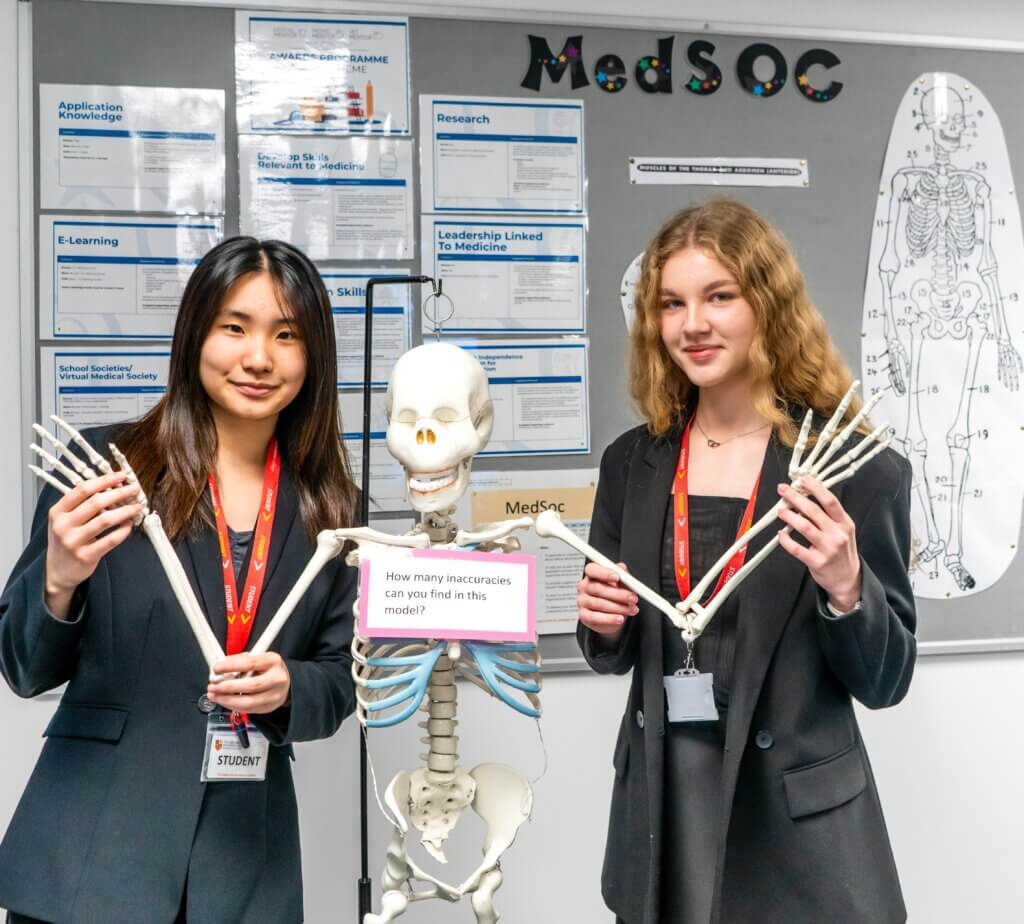The International Baccalaureate (IB) programme is a globally recognised education system that nurtures curious, knowledgeable, and compassionate students. Established in 1968, the IB includes the Primary Years Programme (PYP) for students aged 3-12, Middle Years Programme (MYP) for students aged 11-16, and the Diploma Programme (DP) and Career-related Programme (CP) for students aged 16-18. By June 2024, there were over 8,000 programmes offered in more than 5,800 schools across 160 countries, with a growth rate of 34.2 percent. This blog provides a clear understanding of IB Certificates, how they compare to IB Diplomas, university pathways and more.
What are IB Certificates?
An IB Certificate is a qualification awarded to students who do not or can not complete the full IB Diploma (DP) but have finished the Diploma Programme Courses. Typically, each IB course takes two years to complete.
The DP, known for its rigorous academic standards and holistic approach, requires students to write an Extended Essay (EE), complete requirements in Theory of Knowledge (TOK), and participate in Creativity, Activity, and Service (CAS), along with the courses from six subject groups:
- Studies in Language and Literature
- Individuals and Societies
- Language Acquisition
- Sciences
- Mathematics
- The Arts
In contrast, the IB Certificate offers a more flexible approach. Students do not need to take the EE, TOK, and CAS, but they can earn IB Certificates by selecting one or more courses from the abovementioned subject groups.
IB Certificates vs IB Diploma: In a nutshell
| Criteria | IB Certificate | IB Diploma |
| Overview | Awarded to students who complete only selected IBDP courses and exams | Awarded to students who complete all IBDP requirements |
| Course load | Flexible. Students choose one or more Diploma Programme Courses | Students must complete at least six Diploma Programme Courses, one from each subject group |
| Subjects | Students can take any number of Standard Level (SL) or Higher Level (HL) in specific subjects. | Requires 3 Higher Level (HL) and 3 Standard Level (SL) courses |
| Core components | Core components are not required | Includes Theory of Knowledge (TOK), the Extended Essay, and Creativity, Activity, Service (CAS) Core requirements |
| Assessment | Internal and external assessments for each selected course. There are no additional requirements | Internal and external assessments for all six subjects, plus the core components (TOK, Extended Essay), are sent to the IB for grading. |
| Scoring | Graded on a scale of 1 to 7 per subject. Certificates are awarded for each subject passed. | The IB Diploma is scored out of 45 points, with each of the six subjects contributing a maximum of 7 points, adding up to 42 points. Three additional points are for the core components (TOK, EE, and CAS). To earn the diploma, students must achieve a minimum of 24 points. Additionally, there are specific requirements. Students must earn at least 12 points in HL subjects and 9 points in SL subjects. No subject should have a score of 1, and students cannot have more than two subjects with a score of 2 or more than three subjects with a score of 3. |
Who Should Consider IB Certificates?
The IB Certificate is pursued by a diverse range of learners, allowing them to tailor their studies according to their interests, existing commitments, and future goals. They include:
1) Students not meeting the complete IB Diploma requirements:
Students who can not meet the prerequisites or do not have the ability to complete the entire IB Diploma Programme but still wish to experience IB courses can benefit by pursuing IB Certificates.
2) Students with focused interests:
Those with a strong interest or skill in a specific subject can pursue an IB Certificate. Doing so will enable them to gain more profound knowledge and skills without committing to the entire IB Diploma. For example, a student interested in architecture may focus on IB Mathematics and IB Visual Arts certificates.
3) Students with other academic commitments:
Students already pursuing other rigorous academic programmes, such as the Advanced Placement (AP), may choose to take individual IB courses to showcase their ability to manage rigorous academic subjects without the additional workload of the full IB Diploma.
Countries that do not recognise IB Certificates for university admission
While the US, UK, Canada, and some colleges in India accept IB Certificates as university qualifications, this is not the case for other countries like the Netherlands, Germany, Denmark, Austria, Italy, Spain, and France. These nations have strict governmental regulations for university entry, and IB Certificates alone do not meet the criteria for higher education admission. Additionally, countries like Germany and the Netherlands do not permit entry into their foundation programmes with only IB Certificates, leaving no alternative pathway for students wishing to pursue higher education there.
What is the assessment process for IB Certificates
The IB Certificate assessment process follows a similar structure to the IB Diploma. The criteria involve the following:
1) Internal assessments:
These are projects, essays, or assignments completed during the course, often making up a portion of the final grade. For example, an IB history student may complete an internal assessment that requires them to research a specific historical event and present their analysis.
The student’s teacher evaluates this piece of work, but it is also externally moderated by the IB Organization to ensure consistency.
2) Examinations:
Students take external exams for each IB subject at the end of the course. These exams are the same as those taken by IB Diploma candidates, and IB examiners worldwide evaluate them. IB subjects, whether pursued through the entire Diploma or as certificates, are graded on a scale from 1 to 7, with 7 being the highest possible score.
3) Subject-specific requirements:
Some subjects have additional requirements. For instance, science courses may include laboratory work, while Visual Arts involves the submission of a portfolio of artwork. Language courses might consist of an oral examination.
What are the university pathways for those who have only earned IB Certificates
While the full IB Diploma is often considered the gold standard for university admissions, students with IB Certificates can also successfully secure spots at universities. IB Certificate courses and a strategic approach to college applications can make students compelling candidates even without the full diploma. Our educational counsellors recommend pursuing five to six certificate courses for college admission. Here are a few pathways for those with IB Certificates:
1) Direct university admission with specific entry requirements:
Many universities, particularly in the US, Canada and the UK, accept IB Certificates as part of their application process. Admissions offices may evaluate these certificates similarly to how they consider a national curriculum or A Levels, focusing on the rigour of the coursework and the student’s performance. Of course, conditions vary by country and institution. For instance, McGill University recognises individual IB Certificates as adding rigour to a high school programme. Dalhousie University requires students to submit IB certificates to at least five courses, which must include the general entrance requirements.
In the UK, Imperial College London requires applicants to present at least three HL courses with minimum grade requirements ranging from 6,6,6 to 7,7,6. It also requires 39 points overall. King’s College London accepts IB Certificates on a case-by-case basis. The University of Cambridge only accepts IB Certificates in HL courses or in combination with APs or A Levels.
In India, only four universities accept IB Certificates in three HL and three SL subjects. They include Mumbai Educational Trust- Institute of International Studies (MET), Plaksha University, SP Jain School of Global Management and Shoolini University.
It’s always best to check the specific entry requirements for each course on the university’s website.
2) Community college or foundation year programmes:
Community colleges or foundation year programmes offer a viable alternative for students who may not meet the direct entry requirements of universities. These programmes often provide pathways to a full degree and can be an effective way to transition into university studies. Many community colleges in countries like the US and Canada have transfer agreements with four-year universities, allowing students to complete their degree after transferring.
3) Specific university pathway programmes:
Some universities offer pathway programmes specifically designed for students who do not have the full IB Diploma but have taken rigorous courses like IB Certificates. These programmes often include additional support and preparatory courses to help students succeed in their chosen field. For example, Navitas provides a pathway to university through dedicated pathway programmes. Students study one year at one of their colleges and then progress to the regular undergraduate degree course at the university. Other pathway providers are Kaplan, INTO and OnCampus.
4) Recognition of prior learning or course credits:
Many US and Canadian universities, such as the University of Pennsylvania, New York University, the University of Michigan, the University of Toronto and McGill University, offer recognition of prior learning or credits for IB Certificate in HL subjects with grades above 5 or 6. This means students can potentially skip introductory courses or meet prerequisites for higher-level classes, depending on the university’s policy. Note that the recognition and credits do not extend to SL subjects.
In a world increasingly driven by academic excellence and holistic learning, the flexibility of IB Certificates serves as a bridge for students seeking to tailor their educational journeys. Embracing this option can empower learners to pursue their passions while demonstrating their commitment to rigorous study, ultimately enriching their prospects in higher education and beyond. Please contact us for guidance on your undergraduate curriculum. Meanwhile, read our blogs: IBDP or IBCP: Choosing a Curriculum For Successful College Admissions and IB vs A Levels: What’s the Ultimate High School Curriculum for Your Future?




